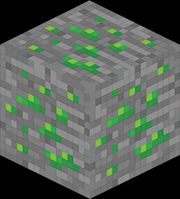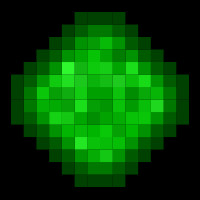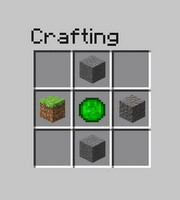| Minecraft Goes Quantum |
| Written by Lucy Black | |||
| Sunday, 20 October 2013 | |||
|
Minecraft is an incredible Turing complete game as it is, but now Google is responsible for adding quantum mechanics into the mix. So can you now build a quantum computer from Minecraft bricks as well as a classical one? Minecraft is, as we all probably know, a game that educates as well as entertains. As it is Turing complete you can use its bricks to build logic circuits and eventually an entire classical computer. This all takes work and a lot of brains, which is why Google, or at least part of Google, thinks that this is the place to find the computer geniuses of tomorrow. To quote from the Google Quantum AI Lab Team's Google+ post: Millions of kids are spending a whole lot of hours in Minecraft, not just digging caves and fighting monsters, but building assembly lines, space shuttles, and programmable computers, all in the name of experimentation and discovery. This raises the next question: So how do we get these smart, creative kids excited about quantum physics? The proposed solution is to add some quantum behaviour to Minecraft and hope that the ideas are absorbed naturally. In conjunction with MinecraftEdu and Caltech’s Institute for Quantum Information and Matter Google has created qCraft, which adds some quantum behaviour to the standard Minecraft world. To explain it they created a very polished video that will mean absolutely nothing to anyone viewing it without a few explanations. So before you watch the video here are some features of qCraft to be aware of. qCraft adds Quantum Ore which can be mined for Quantum Dust - it's the green shiny stuff embedded in the block.
Quantum Ore gives rise to
Quantum Dust
The player needs Quantum Dust to create any quantum devices using the three new Essences - Essence of Observation, Essence of Superposition and Essence of Entanglement. These are devices that you use to create objects with quantum properties and aren't quantum in their own right, or even useful beyond being used to give things quantum properties. Now we get to the quantum behaviors - observation, superposition and entanglement. The idea of quantum observation is implemented by assigning standard blocks to each possible face that can be observed. What the block actually turns out to be depends on which face is first observed. This more or less corresponds to the idea of measurement corresponding to forcing the system into an eigenstate of the measurement operator, but not quite. In a true quantum system the possible eigenstates are just different values of the measurement, not completely different material things. In qCraft a block will appear as, say, stone if one face is observed first, but dirt if another face is observed first. This is extreme rather than subtle but it does convey the idea that measurement forces the entire object into an eigenstate. Taking this a little further we have a simple representation of a spin system. In this case you can assign one or more block type to each axis - up/down, north/south and east/west. Now when a face on an axis is first observed one of the two possible blocks is selected at random. This is something like getting spin up or spin down when you measure the spin along a predefined direction.
A Quantum Block that is stone if the N or S face is observed first and randomly gravel or stone if its E or W face is observed first. In both cases, however, there are extra features the make the blocks more useful in a gaming context and that have nothing much to do with quantum mechanics. For example, a block can be invisible if nothing is specified for an observation. Blocks can also be Chameleons in that they can burst into flames, be a light source, etc. The third type of quantum entity that can be created is an Entangled Block. If you take two blocks of a given type and apply this constraint they will be in the same state no matter where they are. So if you observe an entangled block, its entangled twin will change into the same type of block depending on which face you observed first. To make game play more interesting you can create a pair of Quantum Goggles that let you see the states of all quantum blocks, even if they aren't resolved as yet. You can use this to create puzzles that need the player to select which faces to observe to get a particular outcome. As well as these basic tools, there are also complete quantum computers that can be used to make quantum copies or teleport regions of the Minecraft world. Arguably this is just for game play because it doesn't seem to correspond well to quantum teleportation, which is about creating systems in the same state at a distance. With this information some, but not all, of the video might make sense:
So are you going to learn quantum mechanics if you play qCraft? No. Quantum mechanics is a complicated theory that needs a lot of math to understand at an operational level - and you can spend your entire lifetime trying to figure out what it means. This at best provides some acquaintance with the ideas that are central to quantum computing rather than the "bigger picture". You could say that all you have is a set of blocks that obey some probabilistic rules - but then you can reduce quantum mechanics to just such a set of probabilistic rules. Let's see if someone can implement Shor's or Grover's algorithm using the new blocks. If it can be done you can be very sure that it will be by someone who already knows quantum mechanics and not some naturally gifted player who works their way there by intuition - but I hope I'm wrong.
More InformationRelated ArticlesNobel Prize For Computer Chemists Solve The Riemann Hypothesis With A Quantum Computer Boson Sampling Tests Quantum Computing A Quantum Computer Finds Factors The Revolution In Evolutionary Game Theory - Prisoners Dilemma Solved? $100,000 Prize For Proving Quantum Computers Are Impossible
To be informed about new articles on I Programmer, install the I Programmer Toolbar, subscribe to the RSS feed, follow us on, Twitter, Facebook, Google+ or Linkedin, or sign up for our weekly newsletter.
Comments
or email your comment to: comments@i-programmer.info
|
|||
| Last Updated ( Sunday, 20 October 2013 ) |




